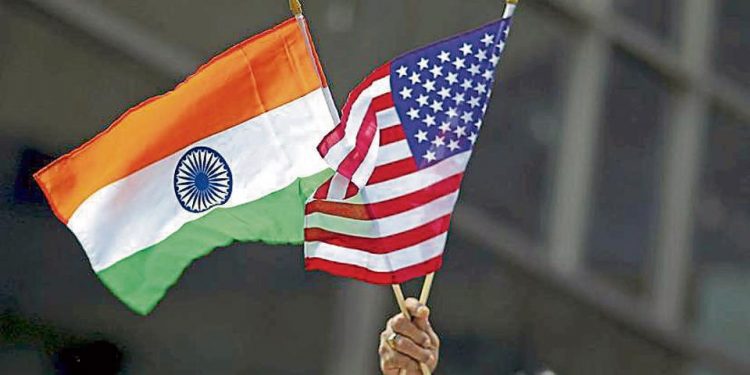Dr. DK Giri
The United States is nudging India into a closer bilateral security alliance as the latter continues to stand-off against China at the border. Also, the US faces the Presidential election November 4. Obviously supporting India, the statements emanating from US officials disapprove of India’s cautious approach to China.
The US National Security Adviser Robert O’Brien said, “Dialogues and negotiations will not work with China which amassed 60,000 troops on the Northern border”. The deputy secretary of state Stephen Beigun visiting India from 12-14 prior to the 2+2 meeting on 26-27 this month said, “As we build the strategic partnership between US and India, there is an elephant in the room, China”. Whereas the US seeks to confront China in alliance with India, is New Delhi ready for it?
The US Secretary of State Mike Pompeo said in a radio interview that tensions have spiked between China and India after the hand-to-hand combat where 20 Indian troops died and China suffered casualties so far not disclosed. Pompeo asserted: “They (India) absolutely need the US to be their ally and partner in this fight”. The world has awakened and the tide has begun to turn. President Trump has built up a coalition that will counter the threat from China, maintain the rule of law and the basic civic decency that come from democracies running the world, not authoritarian regimes.
Characterising the growing India-US partnership, Beigun said, in his speech to a think tank in Delhi, “US’ benefits from forging close links with countries like India that seeks to provide for their own defence. US own interests intersect with those of India. We have seen the conditions emerged for an organic and deeper partnership, fundamental alignment along shared security, shared interests, shared values and geo-political goals”. He elaborated on the partnership and said that post-World War II alliance format requiring in-country US troops’ presence may be no longer necessary.
This is a hint at accommodating India’s foreign policy tradition of strategic autonomy, or giving India leeway to maintain its neutral posture. Beigun added, “The US benefits from an India that is strong and prosperous”. He promised that the US was prepared to do more to strengthen India’s ability to defend itself by promoting inter-operability among the militaries of both countries through regular exercises and exchange, common defence platform and co-development. Cooperation can be achieved in multiple ways in view of advance technology shifts in global economic scenario and changing geo-politics.
The US strategy vis-à-vis China, is two-fold. One, to improve the resilience of US institutions, of alliances and partners to counter the challenges China presents. Second, it seeks to impose tangible costs in order to compel Beijing to stop actions harmful to America’s national interests and those of its allies and partner-nations. In this context, one important partnership which will be one of the most key partnerships for the US in the 21st century is that with India.
It is time New Delhi looks at pooling of sovereignty for a common cause like it is in the European Union. A good many scholars and observers have suggested countries accepting limitations on their autonomy in a mutually beneficial alliance system for a greater goal. New Delhi can no longer be a ‘lone ranger’in international politics. In the Cold War time in 1970s and 80s, New Delhi could play the role of mediator on many occasions. New Delhi should focus on building its economy up to the size of China before beginning to confront it by herself.
The US is talking of deepening and expanding the quadrilateral security dialogue called Quad, an informal group of India, Australia, Japan and US. The perspective on Quad articulated by Beigun suggests that any country wanting a free and open Indo-Pacific and is willing to contribute to it, is welcome to join the Quad.
New Delhi is maintaining friendly relations with all the other three Quad participants. But it is fighting shy of developing Quad into a security framework. New Delhi is bugged by this continuing dilemma of choosing between autonomy and alliance. It is somewhat treating ‘autonomy’ as a Hobson’s choice. This is causing continued vulnerability and heavy costs on our security. The hangover of non-alignment affects the foreign policy establishment of our country.
INFA
The writer is professor of International Relations, JMI.






































